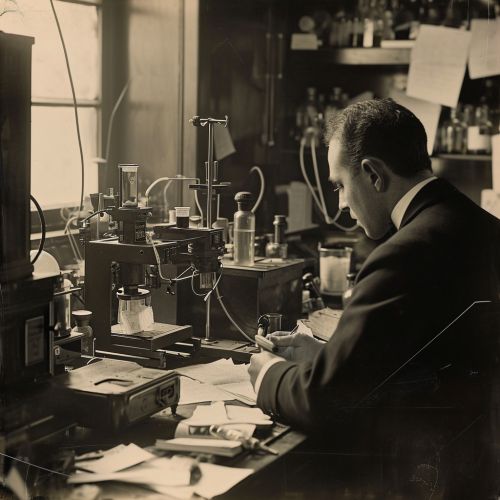Vaccines
Introduction
Vaccines are biological preparations that provide active acquired immunity to a particular infectious disease. They typically contain an agent that resembles a disease-causing microorganism, and is often made from weakened or killed forms of the microbe, its toxins, or one of its surface proteins Immunology. The agent stimulates the body's immune system to recognize the agent as a threat, destroy it, and keep a record of it, so that the immune system can more easily recognize and destroy any of these microorganisms that it later encounters.
History of Vaccines
The development of vaccines has been a long and complex journey, with many scientific discoveries and advancements paving the way. The concept of vaccination was first realized by Edward Jenner in the late 18th century, when he discovered that milkmaids who had contracted cowpox did not show symptoms of smallpox, a far more deadly disease Edward Jenner. This led to the development of the first vaccine, which was for smallpox.


How Vaccines Work
Vaccines work by mimicking the infectious bacteria or viruses that cause disease. This "teaches" the immune system how to fight off these pathogens if the person is exposed to them in the future. Vaccines stimulate the immune system to produce an immune response, such as producing antibodies, which are proteins that can neutralize pathogens Antibodies.
Types of Vaccines
There are several types of vaccines, each designed to teach your immune system how to fight off certain kinds of germs—and the serious diseases they cause. These include live-attenuated vaccines, inactivated vaccines, subunit, recombinant, polysaccharide, and conjugate vaccines, toxoid vaccines, and mRNA vaccines Types of Vaccines.
Vaccine Development and Approval
The process of developing a new vaccine involves numerous stages, including exploratory stage, pre-clinical stage, clinical development, regulatory review and approval, manufacturing, and quality control Vaccine Development. Each of these stages is crucial in ensuring the safety and efficacy of the vaccine.
Vaccines and Public Health
Vaccines have had a profound impact on public health, reducing, and in some cases eliminating, diseases that once routinely killed or harmed many infants, children, and adults. Vaccination programs across the globe have led to the eradication of smallpox and significant reductions in other diseases such as polio, measles, and tetanus Public Health.
Controversies and Misconceptions
Despite the proven effectiveness of vaccines, there have been controversies and misconceptions surrounding their use. These include concerns about vaccine safety, religious, philosophical, and freedom of choice objections, and beliefs in conspiracy theories. It is important to address these misconceptions with factual information and promote the understanding of the benefits of vaccines Vaccine Controversies.
Future of Vaccines
The future of vaccines is promising, with advancements in technology and understanding of the immune system leading to the development of new types of vaccines. These include DNA vaccines, viral vector vaccines, and personalized vaccines. The ongoing research and development in the field of vaccines is expected to continue to improve global health Future of Vaccines.
